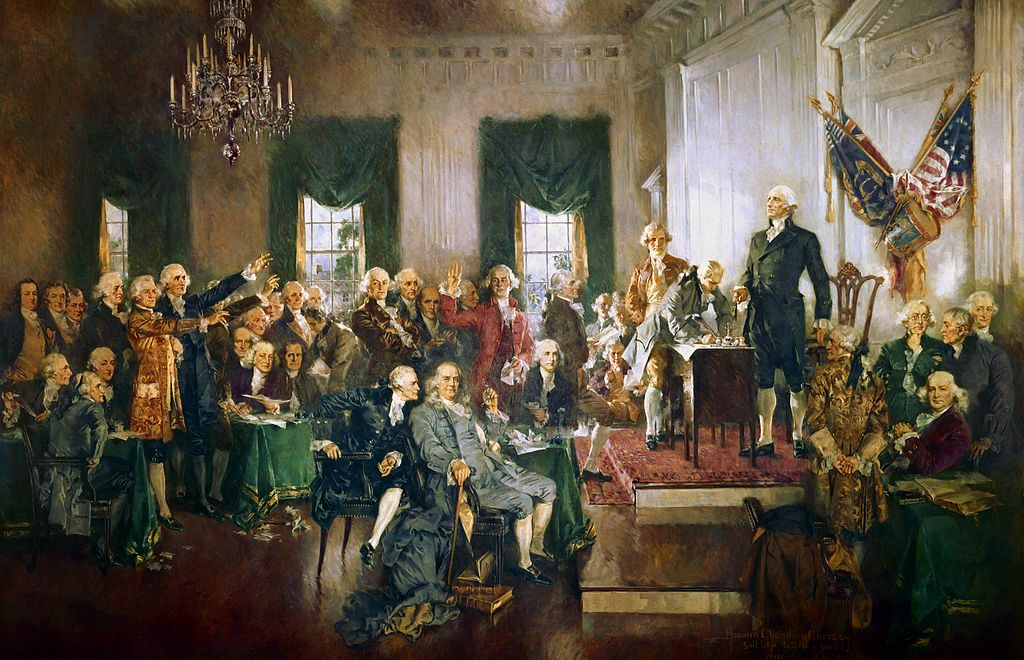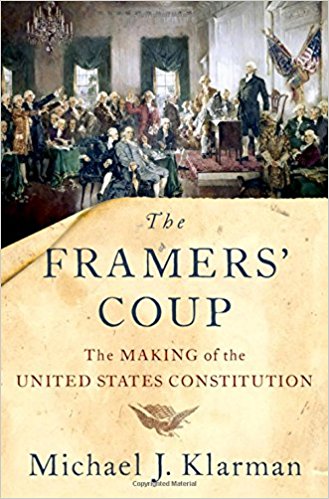Authors:
Historic Era: Era 3: Revolution and the New Nation (1754-1820s)
Historic Theme:
Subject:
Special Issue - George Washington Prize 2017 | Volume 62, Issue 4


Authors:
Historic Era: Era 3: Revolution and the New Nation (1754-1820s)
Historic Theme:
Subject:
Special Issue - George Washington Prize 2017 | Volume 62, Issue 4

As the Constitutional Convention came to a close on September 17, 1787, Benjamin Franklin offered two observations on its proceedings. First, he noted that “when you assemble a number of men to have the advantage of their joint wisdom, you inevitably assemble with those men, all their prejudices, their passions, their errors of opinion, their local interests, and their selfish views.” Second, Franklin thought that, in light of this inevitability, it was astonishing “to find this system [the Constitution] approaching so near to perfection as it does.”
Over the course of the ensuing 225 years, Americans have tended to embrace the second part of Franklin’s observation (the astonishing near perfection of the Constitution) and to neglect the first part (the inherent passions, prejudices, and errors of the Framers). Americans came to revere the Constitution and the men who wrote it, often regarding them as divinely inspired. In 1928, the great civil liberties lawyer Louis Marshall described the Constitution as “our holy of holies, an instrument of sacred import. It has been the guiding principle of the freest Government on earth. Let no unhallowed hand be laid upon it.”

This tendency toward worship of the Constitution and the Framers began early. Just months after the Philadelphia convention ended, James Madison observed that “[I]t is impossible for the man of pious reflection not to perceive in it [the Constitution] a finger of that Almighty hand which has been so frequently and signally extended to our relief in the critical stages of the revolution.” Given the extraordinary diversity of opinions expressed at the Constitutional Convention and the difficulty of adjusting competing considerations in the Constitution, Madison told Thomas Jefferson that one could hardly “consider the degree of concord which ultimately prevailed as less than a miracle.”
During the national debate over whether to ratify the Constitution, supporters (“Federalists”) regularly made similar observations. One Federalist opined that “[t]he unexpected harmony of the federal convention ... must be attributed to the special influence of Heaven,” while another noted that “Heaven smiled on their deliberations and inspired their councils with a spirit of conciliation.” Dr. Benjamin Rush, a leading Pennsylvania Federalist, told his state’s ratifying convention that “the hand of God was employed in this work, as that God had divided the Red Sea to give a passage to the children of Israel.” After the requisite number of states had ratified the Constitution, Rush declared that it was “as much the work of a divine providence as any of the miracles